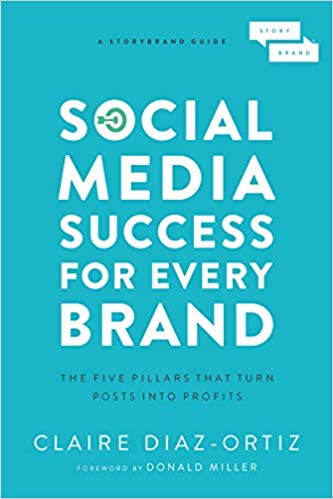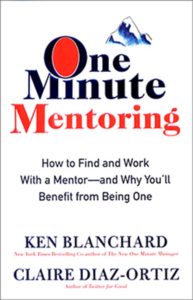This is a follow up to my Twitter thread on Why Women Fund Women.
In short, the reason women investors are more likely to invest in women founders is because as humans we have a propensity towards homophily — the tendency for like to attract like and for similarity to breed connection. The term (“love of the same” in Latin) was coined in 1954 by American sociologists Paul F. Lazarsfeld and Robert K. Merton when studying friendships in a mixed-race housing project, and more than 100 studies have since looked at homophily in networks. Ultimately, “Homophily limits people’s social worlds in a way that has powerful implications for the information they receive, the attitudes they form, and the interactions they experience.”[i]
Here’s a simple story about homophily on Sandhill road to help us understand its wide-ranging effects on venture capital and the startup ecosystem.
We’re all just Homophilic Humans. A Story of Investing on Sandhill Road.
Meet Lara and Chad, General Partners at a once-top Venture Capital firm in Silicon Valley. Lara is a lifelong vegan, Chad is a diehard carnivore. They are looking for the next big thing in foodtech.
In walks a hot new startup, Still Not Coconut Meat!
Lara immediately hits it off with the team as they trade nut-milk-bag optimization tips. Soon, Lara and the founder realize they actually BOTH lived in the Synergy cooperative at Stanford (a decade apart) and ALSO share a sustainable Alpaca wool provider in Bolinas. Chad, whose social graph is 80% pro-meat adjacent, doesn’t get the whole double vegan negative (“Is it coconut? Or is it meat?”) and leaves early to look at his meat-eating certificates. Later, he comments to an analyst that he felt some “cultural dissonance.”
Lara wants to proceed to due diligence, but Chad wants to pass. They decide to revisit at the Monday partner meeting. That familiar deadlock soon turns into a disaster (Blue Bottles were thrown). Is this why their fund is losing its edge? They need help.
In enters an MBA intern to save the day! The nameless intern studied under Harvard Business School Professor Laura Huang, one of the foremost scholars on entrepreneurship and venture capital, and author of EDGE: Turning Adversity Into Advantage. After working hard all summer, the intern puts together a final report in which he makes a startling conclusion about the state of their fund: Chad and Lara’s personal dietary biases are not only leading to conflict – but also to significantly different investing track records. As the intern discovered, Chad’s investments skew dramatically to meat eaters, and Lara’s skew towards vegans. Even more concerningly, when it comes to their pipelines, Chad and Lara are smoking completely different pipes!
Chad’s warm connections and cold inbounds are full of meat-lover-adjacent companies (his recent Clubhouse chat about whole hog distributors in Los Altos had been particularly well attended, after all). So are the meetings he takes and the companies he invests in. In contrast, Lara’s vegan-lover-adjacent social graph makes her ears perk up (and her calendar get full) when words like “fair-trade” or “virgin coconut” show up in her inbox.
“I always knew your pipeline sucked!” Chad yells at Lara.
“Meathead!” She yells back.
Before they started throwing cold brew again, the intern steps in.
“Chad! Lara! You aren’t bad people; you just have bias. All humans do. To paraphrase author Latasha Morrison, if you don’t have bias, you don’t have a brain! It’s human nature to gravitate towards things you know and like. But to get outsized returns, especially in a globalized world where brilliance can come from anywhere, it’s important to diversify your networks to open yourself up to new, contrarian ideas.”
“I’ll admit,” he says, “it’s not always easy.”
The intern then tells Chad and Lara about his previous assignment for a solo GP up the road who had just received a startling mandate from his LPs. In order to maximize returns, 50% of all his investments going forward needed to be in Canadian startups. The GP had been upset. And not because he didn’t like Canada — one of his best friends was Canadian!
But he knew that it would take a lot of work to make this change. Just imagine the books he would have to read, the podcasts he would have to listen to, the conferences he would have to attend, and the people he would have to meet to start mapping out the ecosystem he would need to not only join but become a leader in to get good deal flow!
It wasn’t easy, and it took time. Did that GP sometimes feel tempted to pour out a Haus aperitif or three and send out a tweet like, “Why do I not have more CANADIAN STARTUPS in my pipeline? I HAVE ZERO IDEA WHY THEY ARE NOT MAGICALLY ALREADY HERE!”
The GP finally had a breakthrough when the intern gave him a mug that read: My Pipeline is MY Problem!
“It was inspirational, accountability-based, and funny!” The intern said. “But you guys don’t need a mug. You have each other!”
Chad saw how wise the intern was, and felt relieved he only had to invest in vegans — not Canadians.
Then the intern reminded Chad and Lara of a popular quote attributed to the late, great Leila Janah, founder of Samasource, “Talent is equally distributed, opportunity is not.” In other words, even though the vegans and the carnivores might be equally talented, Chad only gave opportunities to carnivores, and Lara had eyes only for vegans.
The intern explained that a great first step to change all this was to be curious. Join new networks! Learn new things! Make friends who don’t look like you! Read widely! Travel! That said, the real way to make sure the fund didn’t miss the next big thing in foodtech was to ensure that the startups always pitched investors of different dietary persuasions.
Lara didn’t buy it. They’d already tried that. She reminded the intern of the disastrous partner meeting where they discussed Still Not Coconut Meat!
“It was me against seven meat-eaters,” Lara said. “I wanted to talk about the business, but instead I spent the whole time trying to justify the $30B market in plant eating!”
“We did put you on the defensive,” Chad said. “And you were the only vegan in the room.”
“The token vegan!” Lara corrected. “How was I supposed to convince seven myopically pro-lactose investors of the wonders of coconut steak?!”
“Steak?” Said Chad.
The intern had already talked to Professor Huang about what had happened that day. She had explained, “Because of homophily, there was a drastic disparity in representation – in this case between vegans and carnivores. That means the minority decision maker can’t always convince their colleagues to champion their point of view, simply because they are in the minority, regardless of the merits of their ideas.”
Although Huang did have some strategies to improve your odds of being heard when you are in the minority position,[ii] 1 vegan Lara with 7 carnivorous Chads were some bad odds.
“That brings us to the next big problem,” the intern said. “If the fund really wants to invest in the next big thing in foodtech, it’s going to be hard with only one vegan investing partner. To have a real shot at spotting the next best thing in foodtech, you need more dietarily diverse folks around the table.”
The intern adjusted his tie.
“The same is actually true when it comes to investing in women,” he coughed. “Data now shows that women investors invest up to 3 times more often in women founders. For other underrepresented groups like Black people and people of color, data show similar findings.”
“Wait, are we talking about vegans or are we talking about women?” Lara asked.
“Vegans can be women too,” Chad asserted.
The intern wasn’t done. His report emphasized a few other points. And they didn’t have much to do with vegans.
“If the woman is a non-Partner investor, or is a Partner on the operating side without check-writing ability, it won’t do much to increase the fund’s investments into women founders. This is why many funds claim to be hiring more women than they used to, but their investments into women founders aren’t going up,” he said.
Chad was starting to get it. “I can totally see why diversifying investing teams matters so much in Silicon Valley!”
“Well, not just Silicon Valley,” said the intern.
It turned out the intern actually grew up in a country called Guyana.
“Is that in Africa?” Lara asked.
After researching early stage funds and their effects on Latin America and other emerging ecosystems, the intern hypothesized that diversity on investing teams was even more important in emerging ecosystems, where the industry was younger and the patterns weren’t as entrenched.
He painted a gloomy picture for Chad and Lara.
“Imagine if there was only one fund that was such a gatekeeper and a kingmaker that it literally created ecosystems in some markets. This fund could crown the startups who would become the unicorns who would deliver the exits that would create the investors that would build the entire VC ecosystem and fund the next generation of startups. If that fund didn’t have a diverse investing team it would probably affect not only their current numbers, but the numbers for decades!”
“There would be no vegans for miles!” Lara shrieked.
“Or women!” Chad cried.
There was a lot to think about.
“Wow,” said Chad to Lara after the eye-opening meeting. “We really should start paying our interns!”
(As for what to do about it, I have a piece in TechCrunch next week all about it. I’ll link here.)
[i] Ferguson, Niall (August 15, 2017). “The False Prophecy of Hyperconnection”. Foreign Affairs. Retrieved October 1, 2017.
[iii] https://www.kauffmanfellows.org/journal_posts/a-new-platform-for-emerging-managers
[iv] https://25iq.com/a-dozen-lessons-for-entrepreneurs/
[v] That’s because we know that investing in women is, to paragraph Jen Neundorfer, GP of January Ventures, investing in an underlooked asset class that is overperforming.[v]



